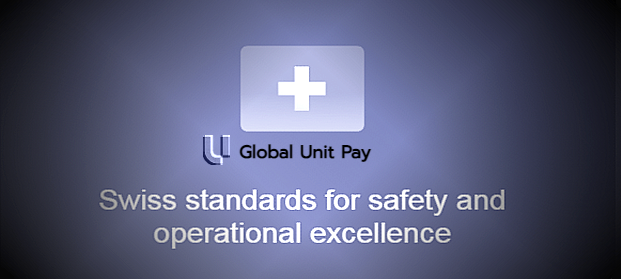Accredited InvestorsAltcoinAnatoli UnitskyAnti-Money Laundering (AML) In CryptoAPIArbitrageArtCoin TokenArticle DirectoryASICAuction Terminology GlossaryBasics of Stock Market InvestingBear MarketBest Crypto Payment Provider In the WorldBitcoinBlockchainBlockchain ConfirmationBlockchain Consensus MechanismBlockchain ForkBlockchain GlossaryBored Ape Yacht ClubBuild a Business That OutperformsBull MarketBuying SkyWay SharesByzantine Fault Tolerance (BFT) ExplainedCasascius CoinCentral Bank Digital Currency (CBDC)Centralized Crypto ExchangeCoinCoinsetCold WalletCollateralCommodity Futures Trading Commission (CFTC)Cross-Chain TechnologyCRUCrypto ExchangeCrypto GlossaryCrypto JokesCrypto Terms to KnowCrypto TickerCryptocurrencyCryptographyCryptojackingCryptounit BlockchainCryptounit GlossaryCryptounit ProgramdApp (Decentralized Application)Dead CoinDecentralized Exchange (DEX)Decentralized Finance (DeFi)Difference Between Bitcoin and EthereumDifferent Ways of Investing MoneyDigital CurrencyDistributed LedgerDo Your Own Research (DYOR)Dollar Cost Averaging (DCA)Dow Jones Industrial Average (DJIA)EncryptionERC-20ERC-721EthereumEvoScentFear Of Missing Out (FOMO)Fear, Uncertainty and Doubt (FUD)Fiat MoneyFNT Fintech CompanyGenesis BlockGlobal Unit PayGlossary of Banking TermsGlossary of Business TermsGlossary of Financial TermsHalvingHODLHot WalletHow Do I Start InvestingHow Rich is Satoshi Nakamoto?How to Create a BlockchainHow to Find Private InvestorsHow to Get Into FintechHow to Program Smart ContractsI Am Thrilled to Be a Part of This Global ProjectInitial Coin Offering (ICO)Initial Public Offering (IPO)Initial Token Offering (ITO)Innovation Basalt TechnologyInnovative Transportation TechnologiesInternational Bank Account Number (IBAN)Investing in Gold Mining StocksInvesting in Gold MiningJagerJoy of Missing Out (JOMO)Know Your Customer (KYC)LedgerLiquidity in CryptocurrencyMaker and Taker Fees in Crypto TradingMarket Capitalization (Market Cap)Meme CoinMetal Credit CardMetaMaskMillenials Now Have Access to Generational WealthMy Best Investment EverNew Digital EvolutionNFT GlossaryOff-Chain TransactionsOn-Chain TransactionsOpen Edition NFTPeer-to-Peer (P2P)Personal Loan GlossaryProbably the Best STO on the MarketProof of Stake (PoS)Real Estate Glossary of TermsReal Estate Investing GlossaryRebase TokenSecurities and Exchange Commission (SEC)Security Token ExchangesSecurity Token Offering (STO)Soulbound Decentralized Identities for Security TokensSoulbound ID Launch by Stobox Proves a SuccessSoulbound TokensStoboxStock Market GlossaryTestimonialsTether Platform and Token (USDT)UnitEx ExchangeUnitsky String TechnologiesUNTBUSDUValidatorWe Started Investing When We Were 25What are Blue Chip NFT?What are Blue Chip Stocks?What are Crypto Assets?What are Crypto Smart Contracts?What are CryptoPunks NFT?What are Digital Assets?What are Digital Collectibles?What are Gas Fees?What are Gas Wars?What are Hashmasks?What are Non Fungible Tokens?What are Non-Sufficient Funds (NSF)?What are Soulbound Tokens (SBT)?What are Stablecoins in Crypto?What are Transactions Per Second (TPS)?What are Utility NFTs?What are Utility Tokens?What Does Burning Crypto Mean?What Does Diamond Hands Mean?What Does Paper Hands Mean?What Does To The Moon Mean?What Does WAGMI Mean?What Happened to Satoshi Nakamoto?What is a 51% Attack?What is a Baby Boomer?What is a Backlink?What is a Banner?What is a Barcode?What is a Bid-Ask Spread in Crypto?What is a Block in Blockchain?What is a Block Reward?What is a Blockchain Address?What is a Blockchain Node?What is a Blockchain Oracle?What is a Blog?What is a Bond?What is a Bot?What is a Broker?What is a Business Accelerator?What is a Cash Cow?What is a Commercial Bank?What is a Commodity?What is a Con?What is a Credit?What is a Credit Limit?What is a Credit Rating?What is a Crypto Airdrop?What is a Crypto Bridge?What is a Crypto Scam?What is a Crypto Token?What is a Crypto Wallet?What is a Crypto Whale?What is a Crypto Winter?What is a Cryptocurrency Public Ledger?What is a Cryptocurrency Roadmap?What is a DAO?What is a Dark Pool?What is a Day Trader?What is a Dead Cat Bounce?What is a Default?What is a Derivative?What is a Digital Credit Card?What is a Fiscal Quarter?What is a Fungible Token?What is a Governance Token?What is a Grace Period?What is a Hard Fork?What is a Hot Wallet?What is a Hybrid Blockchain?What is a Hybrid PoW/PoS?What is a Joint Account?What is a Market Cap?What is a Merkle Tree in Blockchain?What is a Mining Farm?What is a Nonce? What is a PFP NFT?What is a POS System?What is a Prepaid Card?What is a Private Blockchain?What is a Private Key?What is a Public Blockchain?What is a Public Key?What is a Reserve Currency?What is a Ring Signature?What is a Routing Number?What is a Rug Pull in Crypto?What is a Safe Deposit Box?What is a Satoshi?What is a Security Token?What is a Seed Phrase?What is a Shitcoin?What is a Sidechain?What is a Soft Fork?What is a Spot Market?What is a State Bank?What is a SWIFT Code?What is a Tax Identification Number (TIN)?What is a Time Deposit?What is a Transaction Account?What is a Variable Interest Rate?What is a Virtual Assistant (VA)?What is a Virtual Card?What is a Virtual Currency?What is a Visa Card?What is a Whitelist in Crypto?What is a Whitepaper?What is Accounts Payable (AP)?What is AMA in Crypto?What is Amortization?What is an Accrual?What is an ACH Transfer?What is an Actuary?What is an Addendum?What is an Algorithm?What is an Angel Investor?What is an Annuity?What is an Asset?What is an ATM?What is an Atomic Swap?What is an Audit?What is an Avatar?What is an EIN?What is an Embargo?What is an Entrepreneur?What is an IDO (Initial Dex Offering)?What is an Interest Rate?What is an Internet cookie?What is an Investment Bank?What is an NFT Drop?What is an NFT Floor Price?What is an Ommer Block?What is an Orphan Block?What is an Outstanding Check?What is an Overdraft?What is Artificial Intelligence (AI)?What is B2B (Business-to-Business)?What is B2G (Business-to-Government)?What is Bartering?What is Bitcoin Dominance?What is Bitcoin Pizza Day?What is Blockchain Immutability?What is Blockchain Used For?What is BRICS?What is Business-to-Consumer (B2C)?What is C2C (Customer to Customer)?What is Capitalism?What is Catfishing?What is CFD Trading?What is Check Kiting?What is Cloud Mining?What is Communism?What is Content Marketing?What is Decentralization in Blockchain?What is DeFi in Crypto?What is Delisting?What is Depreciation?What is Digital Marketing?What is Diversification?What is Double Spending?What is Dumb Money?What is Dumping?What is Earnings Per Share (EPS)?What is Economics?What is Email Marketing?What is Equity?What is Etherscan?What is Fintech?What is Foreign currency?What is Forex?What is Fundamental Analysis (FA)?What is GameFi?What is Generative Art NFT?What is Gwei?What is Hard Currency?What is Hash Rate?What is Hashing in Blockchain?What is Inflation?What is Initial Game Offering (IGO)?What is Interest?What is Interest Income?What is Mainnet?What is Mastercard?What is Metaverse in Crypto?What is Mining in Cryptocurrency?What is Minting NFT?What is Mobile Banking?What is Money Laundering?What is NFT Alpha?What is NFT Metadata?What is NFT Rarity?What is NGMI Meaning?What is Nominal Interest Rate?What is Online Banking?What is Open-End Credit?What is OpenSea NFT Marketplace?What is Personal Identification Number (PIN)?What is Play-to-Earn?What is Polygon?What is Proof of Authority (PoA)?What is Proof of Work (PoW)?What is Public Key Cryptography?What is Pump and Dump?What is Quantum Computing?What is Refinancing?What is Retail Banking?What is Ripple?What is Sharding?What is Slippage in Crypto?What is Smart Money?What is Solvency?What is Soulbound ID?What is SSL?What is Staking in Cryptocurrency?What is Technical Analysis (TA)?What is Testnet?What is the Ask Price?What is the Better Business Bureau (BBB)?What is the Bid Price?What is the Dark Web?What is the InterPlanetary File System (IPFS)?What is the Gold Standard?What is the Lightning Network?What is the Prime Rate?What is the Sandbox?What is the Secondary Market?What is the World Bank?What is Tier 1 Capital?What is Tokenomics?What is TRC-20?What is Universal Banking?What is Unspent Transaction Output (UTXO)?What is Usury?What is Volatility in Crypto?What is Wash Trading?What is Web3?What is Whisper?What is XRP?What is Zero-Knowledge Proof (ZKP)?Who is Beeple?Who is Satoshi Nakamoto?Who is Vitalik Buterin?Why Tokenization is a Safe HavenWhy You Should Try Your Hand at Trading
Anti-Money Laundering (AML) In Crypto
- Home
- Cryptounit Glossary
- Anti-money Laundering (AML) In Crypto
Utilizing anti-money laundering (AML) processes is a clear solution for upholding a pristine cryptocurrency environment, as they offer controlled and consistent methods for thwarting financial wrongdoing.

The financial services sector is constantly evolving and cryptocurrencies stand out as a highly dynamic, rapidly evolving and inventive aspect of it. As a result, the implementation of AML measures has become crucial to ensure the legitimacy and security of cryptocurrency transactions.
What is Anti-Money Laundering (AML) In Crypto?
Anti-money Laundering (AML) refers to a set of laws, regulations, and procedures designed to prevent the illegal generation and movement of funds. In the context of cryptocurrencies, AML is the process of verifying the identities of cryptocurrency users and monitoring their transactions to detect any suspicious activity.
AML regulations require that cryptocurrency exchanges and other service providers follow strict procedures to identify and verify their customers. These procedures typically involve collecting personal identification information such as names, addresses, and government-issued identification. The service providers must also conduct ongoing monitoring of their customers' transactions and report any suspicious activity to the relevant authorities.
Why is AML Important?
The decentralized nature of cryptocurrencies makes them a prime target for money launderers and other criminals. Cryptocurrencies allow for anonymous transactions, which can be used to move large sums of money across borders without detection. Without proper AML measures, cryptocurrencies can become a tool for criminal organizations to finance their operations, including terrorism and other illegal activities.
AML regulations help to prevent the misuse of cryptocurrencies by ensuring that service providers are aware of their customers' identities and activities. These regulations also provide law enforcement with the necessary tools to detect and prevent criminal activity, thereby protecting the integrity of the financial system.
How is AML Enforced in Crypto?
AML regulations vary by jurisdiction, but they typically require cryptocurrency service providers to comply with a range of requirements. These requirements may include customer identification, transaction monitoring, and reporting suspicious activity.
Cryptocurrency exchanges and other service providers are required to verify the identities of their customers using various means, such as requesting government-issued identification and conducting background checks. They must also monitor their customers' transactions to detect any suspicious activity, such as transactions involving large sums of money or those that appear to be structured to avoid detection.
If a service provider identifies any suspicious activity, they must report it to the relevant authorities, such as financial regulators or law enforcement agencies. Failure to comply with AML regulations can result in severe penalties, including fines and imprisonment.
How Does AML Affect Crypto Exchanges?
The growing prevalence of money laundering and illicit financial activity within crypto platforms has heightened the need for well-designed anti-money laundering (AML) and know-your-customer (KYC) policies. AML compliance practitioners strive to comprehend how criminals utilize crypto and make exchanges safer, assuring users about the identities of their transaction partners. Without AML measures, exchanges can be exploited to facilitate transactions with malicious actors, or be repurposed as on or off-ramps for placement or integration, with illicit funds passing through innocent exchanges undetected.
In addition to regulating the onboarding of new users, AML programs seek to identify risks early in money trails, recognize suspicious activities by analyzing datasets, and use methods like small test transactions to expose illicit chains. The scrutiny of illicit flows enhances our understanding of money laundering, even within this low-visibility domain.
Comprehensive AML programs address both crypto-to-crypto exchanges and fiat-to-crypto transactions, detecting financial crimes as crypto is exchanged back into fiat currency during the integration phase.
However, AML programs for crypto, along with cryptocurrency regulation, are still in their infancy, with different types of transactions treated differently across the globe. While financial institutions receive some government backing, crypto regulations are in constant evolution, influencing adoption rates and market stability.
So, how does AML affect crypto exchanges? Presently, it provides a standardized way of filtering transaction participants. However, some argue that AML requirements do not affect crypto exchanges sufficiently, and better prevention and detection methods are necessary for the future.
Prevention and Detection
Comprehensive and effective AML/KYC programs, including wallet screening and transaction monitoring, are key to preventing and detecting money laundering in the world of cryptocurrency.
KYC procedures, which can range from submitting certain documents to video identification, allow financial institutions to assign risk values to individuals based on their financial history and any sanctions. This helps institutions to identify high-risk candidates and stop financial crime at its source.
Wallet screening, on the other hand, helps to identify bad actors by assessing risk exposure and identifying wallets associated with known entities or individuals. This allows institutions to block transactions outside of their risk threshold and combat fraud by tracking the source and destination of funds.
Transaction monitoring, meanwhile, enables institutions to identify problematic movements of funds and detect anomalous behavior that could indicate illicit activity. The results of transaction monitoring can help institutions to create configurable wallet risk scoring, which can be used to inform users about who they are transacting with and enhance the overall safety of cryptocurrency exchanges.
However, while AML prevention and detection activities are crucial for creating a safer environment, institutions must also be careful not to hinder the user experience of decentralized banking. AML is a balancing act between empowering individuals to trade freely while mitigating the risk of financial crime.
Ultimately, automated and integrated AML prevention measures are the best way to ensure that the user experience of cryptocurrency remains streamlined and user-friendly, without compromising on safety and security. Wallet screening and transaction monitoring are therefore critical components of any effective AML program in the world of cryptocurrency.
Soulbound ID and Anti-Money Laundering
Soulbound ID is a concept in the cryptocurrency world that has the potential to revolutionize the way anti-money laundering (AML) and know your customer (KYC) policies are implemented. The idea of a Soulbound ID is that it is unique to an individual and cannot be duplicated or replicated, making it an ideal solution for AML.
One of the challenges of implementing AML policies is verifying the identity of the individual. It is relatively easy to create multiple identities or use fake information to pass KYC checks, leading to money laundering and other financial crimes. A Soulbound ID is designed to prevent this by creating an identity that is uniquely tied to an individual, making it impossible to create duplicates.
Using a Soulbound ID for AML purposes has many benefits. Firstly, it would significantly reduce the risk of identity fraud, making it much harder for criminals to use fake identities to launder money. Secondly, it would provide a secure and reliable method of verifying an individual's identity, reducing the risk of false positives and false negatives. This would improve the efficiency of AML policies and reduce the burden on financial institutions.
Soulbound ID has the potential to revolutionize the way AML policies are implemented in the cryptocurrency industry. By providing a secure and reliable method of identity verification, it would significantly reduce the risk of identity fraud and improve the efficiency of AML policies.
Related Articles

Know Your Customer (KYC)
KYC is a critical component of anti-money Laundering (AML) and Combating the Financing of Terrorism (CFT) laws.

What is a Rug Pull in Crypto?
Rug pulls are common in DeFi since tokens can be created easily and listed on DEXs with little to no KYC or AML. Anyone can set up a...

Global Unit Pay
Global Unit Pay is an authorized member of the d'Organisme de Surveillance pour Intermédiaires Financiers & Trustees (SOFIT) organization, and as such is supervised by SOFIT as a supervisory authority officially recognized by the Swiss Financial Markets Authority (FINMA), supervised in accordance with with the Swiss Federal Anti-Money Laundering Act (AMLA).

Soulbound ID
For this reason Soulbound-tokens are the future of the decentralized internet. They are non-transferable tokens that are linked to a wallet and represent a person's identity using...
- Home
- Cryptounit Glossary
- Anti-money Laundering (AML) In Crypto